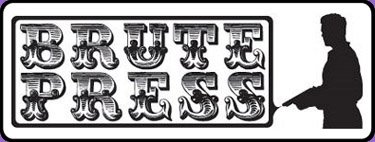So the Fed has admitted that quantitative easing is part of the plan. For those who are only learning what this means for the first time during this living-history lesson (like myself), it means increasing the monetary supply to grease the economy, doing what would ordinarily cause inflation in better times. Japan did this famously in the 90s, with little success, so the plan here is to do it better and quicker to make it work.
What they are doing is pumping money into the economy by buying up assets, increasing their balance sheet with cash drawn from, for lack of a better term, nowhere. More cash = more spending, which might ordinarily drive up prices, but now they are just hoping to increase revenue flows.
Unfortunately, it doesn't seem to be working yet. The banks from which the assets are being bought are just depositing the cash back into the Fed Reserve, which does serve to deleverage them from bad assets, but doesn't help the economy. The credit impasse seems to be sticking, because the banks aren't lending the money back out. Meanwhile, Treasuries are being sold like hot cakes, with the 3-month bill return being almost zero. Bad things that could happen include: the treasury market crashing and the dollar crashing, deflation, and more companies failing as a result of credit problems, which would only increase the amount of assets that the Fed would still need to take out of the market to keep it where it is.
But the main issue, as I see it, is that this shows that the Fed is not pushing for nationalization, as I had argued a couple of times previously. Or, at least they say that their not, because to say so could cause a HUGE panic among investors, who fear the phrase as much as they love "open market".
But, the fact that the quantitative easing is not working only pushes the case for nationalization, and not just from my teleological standpoint. Firstly, and most obviously: if the banks aren't doing what they need to be doing on their own, somebody (or some legislation) will eventually have to force them to do so. Secondly: if there is a currency crash, the country will have to take such drastic steps not only to prevent our economy from going down the tubes, but from all the dollar-backed currencies from going down the tubes. This is a lot more pressure than just the irrational red-baiting fears of "investors". Economists, eventually, always look at the facts. Thirdly: if Treasuries stop selling, something else must prop up the dollar. Now, I admit I'm not an economist, so I don't have a reference list of other options that aren't nationalization (my teleology laid bare). However, if the "open-market" policies of the Fed aren't having an effect, like for example, if treasuries aren't being bought and the value of the dollar is decreasing, controlling the supply of the bills on the open market could be used to control the price: like a repo to oneself. This would be more efficient than the open-market buying of assets, or of other repos. It could be carefully modeled and controlled.
And fourthly, aside from monetary policy: there is the matter of industry. This is the important one, because nationalizing the banks is all well and good, but if the industry is not coordinated as well, you might as well not even bother. The key to national control of infrastructure and economy, in my opinion, is coordination, direction, and execution. These are the benefits that a nationalized economy could have (stress the "could") that a free-market economy will never have.
Which brings us to that trying threesome, the American auto industry. They were sent back to Detroit in shame yesterday, because they could not convince Congress that they had a good plan. This is good, because it means that they will not just be handed cash, and also because it means the next time they will get the help they need. I hope it comes in the form of partial nationalization. I think that Congress realizes that they cannot convert themselves into profitable industries, let alone "automakers for the next century" without a drastic plan that will cost a lot of money to begin with. Operating cash is going down the drain. They need investment, and with investment comes direction, coordination, and execution (hopefully). And because the UAW will necessarily be included in any saving legislation, this could be a good beginning for nationalizing movements in American industry in concert with workers groups, and not just industrial leaders.
At least, I hope so. Or, the Fed and Congress could just keep pushing cash into the economy, hoping for a break in the liquidity trap, which may happen after long enough. Or it could all go down the tubes, and then, of course, the zombies.
The zombies do have a plan for the economy. Not nationalization, but cannibalization! (In America, first you get the assets, then you get rotting, then you get the flesh!)




No comments:
Post a Comment